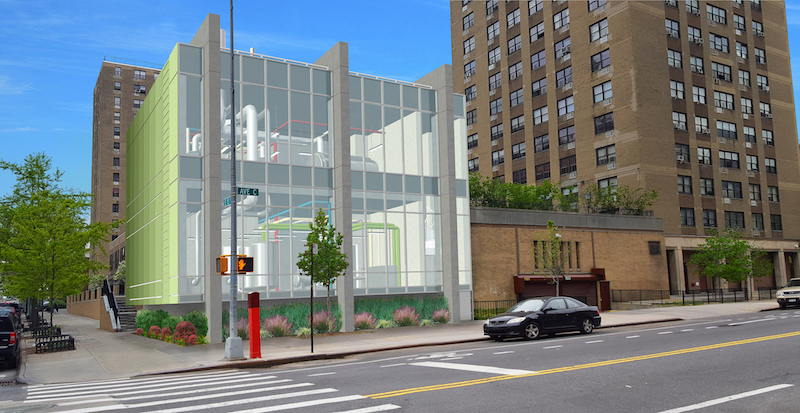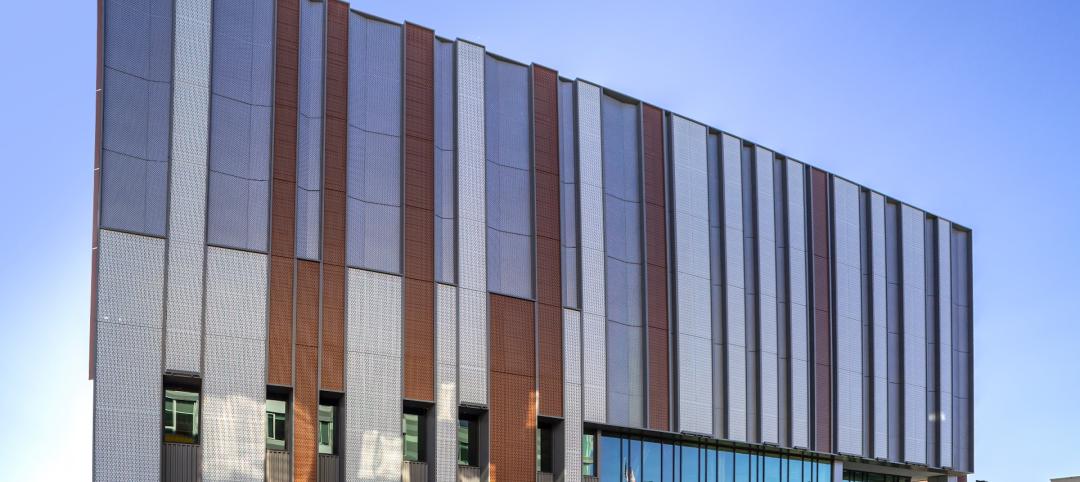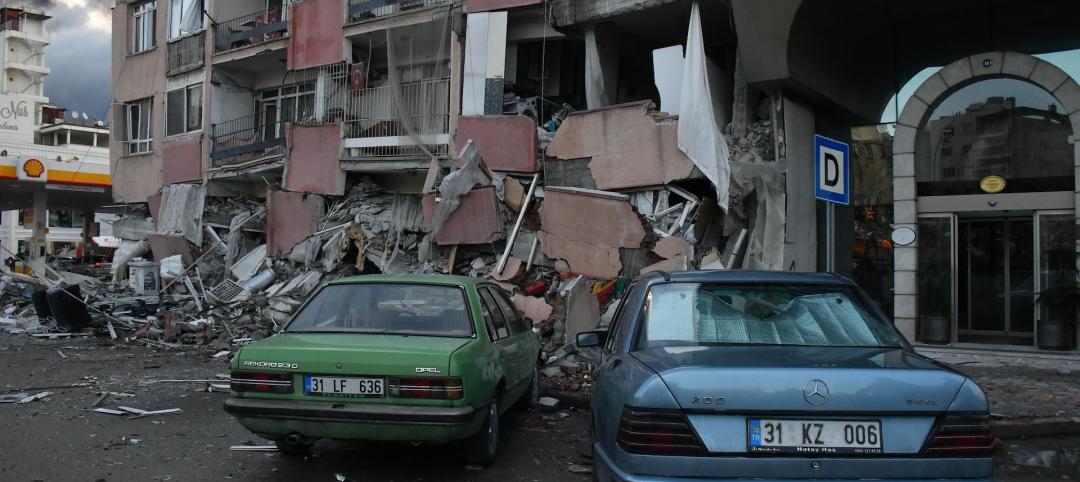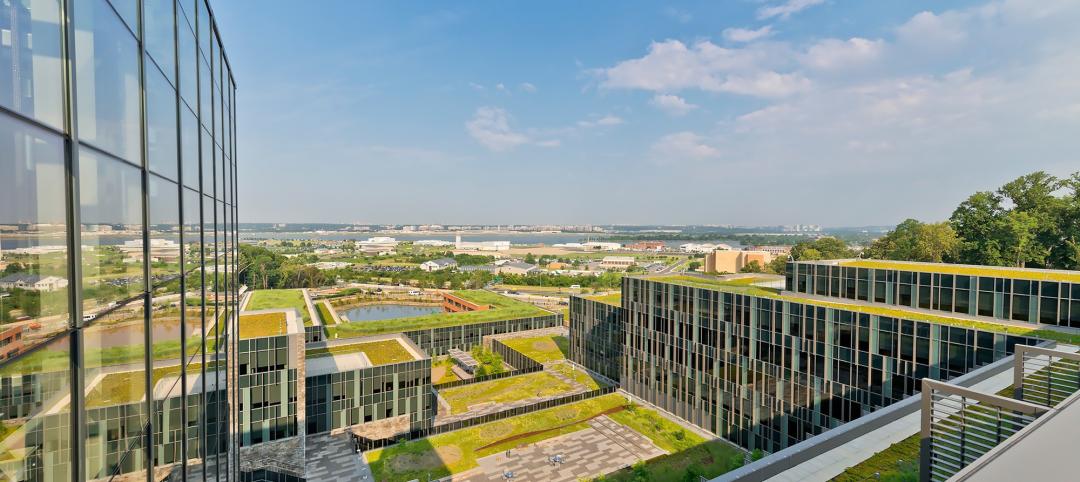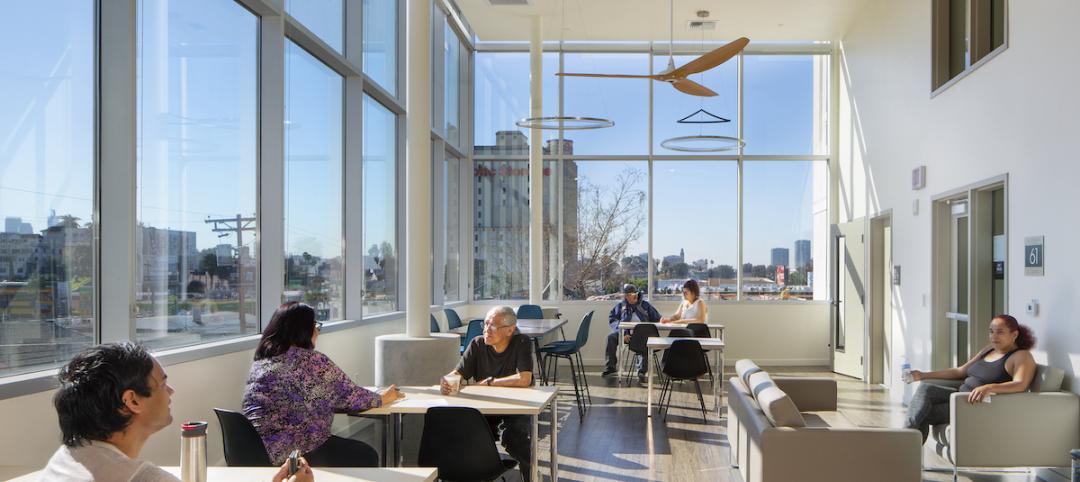After Hurricane Sandy in 2012, Haven Plaza, an affordable housing complex, lost all electricity. This left residents, many of them elderly, without elevator service, heat, or water. In an effort to prevent this from happening again, a new $9.89 million natural disaster-resistant infrastructure building has just broken ground and associated resiliency upgrades are being added to the existing housing complex known as Haven Plaza.
Located at 212 Avenue C at East 13th Street, the new building will offer 2,080 sf of space. It will include three gas boilers for heating steam on the second level; electrical meters, domestic hot water pumps, and hot water heaters on the first level; and oil backup storage in the protected sub-grade space. The new building will allow Haven Plaza to be self-sufficient in case of another natural disaster like Hurricane Sandy, as well as during normal operations. The building is being built in a heavily trafficked area in the East Village. As such, it will be aesthetically pleasing and use a glazed façade that allows people to view the equipment within.
The new building, designed by CTA Architects, will incorporate 1,300 sf of glazed curtain wall, 1,500 sf of metal façade panels, and 500 sf of green wall. Poured-concrete floors with poured-concrete walls allow for a column-free space that can accommodate the large equipment that will be housed within. 15 100-ton-capcaity poured-concrete underground pilings will be incorporated into the foundation system due to the low bearing quality of the soil.
“We specified three poured-concrete columns that expand vertically throughout the height of the building, for visual impact. They take the form of ‘fins,’” says CTA Principal Craig Tooman, AIA, LEED AP. These fins will work as columns and will support the concrete slabs, lift the entire structure 5 feet above the flood plain, and allow for the fully glazed facade along the avenue. The location of the site’s underground utilities, which have to be protected, dictated the fins’ size and placement.
The surrounding green space will be landscaped with plants that are both drought-tolerant and capable of surviving in seawater should the area flood again.
Haven Plaza, which is owned by Haven Plaza Square, an affiliate of the Association of New York Catholic Homes and the New York Institute for Human Development, includes 371 affordable rental units across its 460,000-sf complex. Upgrades to these existing buildings include raising many elements of the electrical system, upgrading the elevator systems in the three high-rises with flood sensors, and installing new wiring and platforms for portable power generators in all three buildings.
Related Stories
Sustainability | Apr 10, 2023
4 ways designers can help chief heat officers reduce climate change risks
Eric Corey Freed, Director of Sustainability, CannonDesign, shares how established designers and recently-emerged chief heat officers (CHO) can collaborate on solutions for alleviating climate change risks.
Cladding and Facade Systems | Apr 5, 2023
Façade innovation: University of Stuttgart tests a ‘saturated building skin’ for lessening heat islands
HydroSKIN is a façade made with textiles that stores rainwater and uses it later to cool hot building exteriors. The façade innovation consists of an external, multilayered 3D textile that acts as a water collector and evaporator.
Resiliency | Apr 4, 2023
New bill would limit housing sprawl in fire- and flood-prone areas of California
A new bill in the California Assembly would limit housing sprawl in fire- and flood-prone areas across the state. For the last several decades, new housing has spread to more remote areas of the Golden State.
Sponsored | Cladding and Facade Systems | Mar 15, 2023
Metal cladding trends and innovations
Metal cladding is on a growth trajectory globally. This is reflected in rising demand for rainscreen cladding and architectural metal coatings. This course covers the latest trends and innovations in the metal cladding market.
Student Housing | Mar 13, 2023
University of Oklahoma, Missouri S&T add storm-safe spaces in student housing buildings for tornado protection
More universities are incorporating reinforced rooms in student housing designs to provide an extra layer of protection for students. Storm shelters have been included in recent KWK Architects-designed university projects in the Great Plains where there is a high incidence of tornadoes. Projects include Headington and Dunham Residential Colleges at the University of Oklahoma and the University Commons residential complex at Missouri S&T.
Seismic Design | Feb 27, 2023
Turkey earthquakes provide lessons for California
Two recent deadly earthquakes in Turkey and Syria offer lessons regarding construction practices and codes for California. Lax building standards were blamed for much of the devastation, including well over 35,000 dead and countless building collapses.
Sustainability | Feb 9, 2023
New guide for planning, designing, and operating onsite water reuse systems
The Pacific Institute, a global nonpartisan water think tank, has released guidance for developers to plan, design, and operate onsite water reuse systems. The Guide for Developing Onsite Water Systems to Support Regional Water Resilience advances circular, localized approaches to managing water that reduce a site’s water footprint, improve its resilience to water shortage or other disruptions, and provide benefits for local communities and regional water systems.
Concrete | Jan 24, 2023
Researchers investigate ancient Roman concrete to make durable, lower carbon mortar
Researchers have turned to an ancient Roman concrete recipe to develop more durable concrete that lasts for centuries and can potentially reduce the carbon impact of the built environment.
Sustainability | Jan 23, 2023
How regenerative design is driving AEC industry innovation
HOK's Sean Quinn and Microsoft's JoAnn Garbin discuss the next step of sustainability: regenerative design.
Multifamily Housing | Jan 19, 2023
Editorial call for Multifamily Affordable Housing project case studies - no cost to submit!
Building Design+Construction will feature a roundup of "Multifamily Affordable Housing" projects on BDCnetwork.com.


